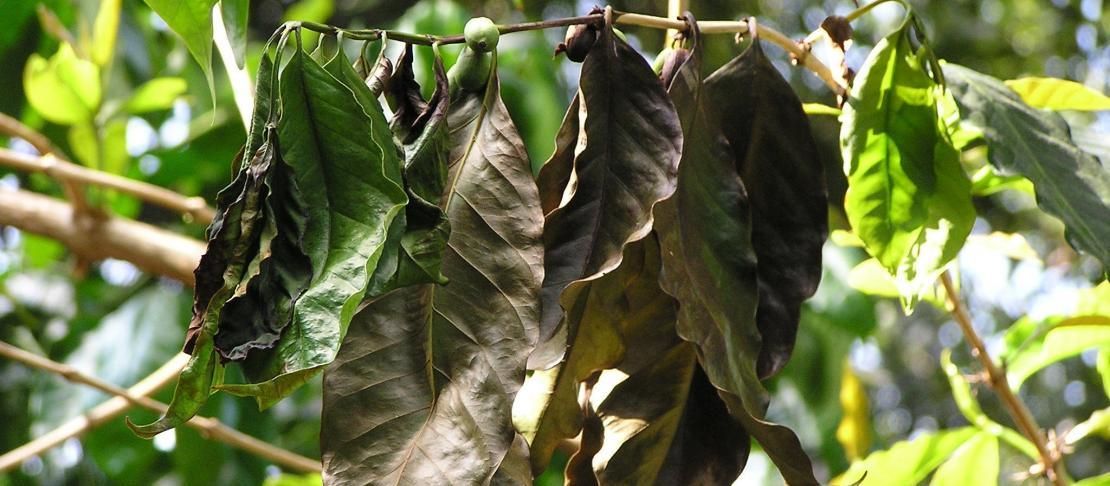Learning how to fight pests with trees: New research from Uganda

A new journal article by coffee researchers highlights findings to help reduce infestation with shade tree systems.
How can an insect cost Ugandans USD 40 million per year? For coffee farmers in this East African nation, these losses result from coffee infestation by black twig borer, a small beetle that does big damage when the females bore into the twigs (coffee bearing branches) and stems to lay their eggs.
To fight this pest, scientists at the International Institute of Tropical Agriculture (IITA) conducted a study on 150 coffee farms in the greater Luweero region of Central Uganda across three different rainfall zones. By examining the density of shade coverage provided by larger trees on the coffee farm as well as the mix of tree species used and their characteristics, the researchers learnt that the pest can be suppressed using ecological techniques as of an integrated pest control approach.
The results showed that areas with higher temperatures and less rainfall were less susceptible to black twig borer infestation, which implies that future climate scenarios showing a warmer temperature in Uganda may help reduce the spread of the damaging pest. However, there are also predictions that some of the humid areas of the country may become more suitable for coffee production (of a type of coffee known as Robusta), but these areas might also become more prone to twig borer infestation.
The researchers also found that taller, bigger trees were better at keeping away the twig borers than smaller trees. There are also certain trees that work better at keeping the pest away and other trees that attract higher levels of the insect. Sharing these results with farmers can help them manage their coffee farming practices to achieve better and higher quality yields, earning themselves more income.
The scientists advise that future research should investigate the pest’s flight activity, range and seasonal dynamics, aiming to identify microclimatic variables influencing dynamics of the pest. This knowledge will greatly help in developing guidelines for coffee agroforestry systems to suppress black twig borers both now and in the future.
Learn more
For more on how IITA is working with partners to bring climate-smart agriculture practices to coffee farmers, see this video from the World Bank.
To read the full paper and learn more about the specific research methods and findings, download the paper: Bukomeko H, Jassogne L, Kagezi GH, Mukasa D, Vaast P. 2017. Influence of shaded systems on Xylosandrus compactus infestation in Robusta coffee along a rainfall gradient in Uganda. Agricultural and Forest Entomology
Laura Cramer is a Science Officer with the Flagship on Priorities and Policies for CSA.
Interested in more updates like this? Subscribe to the Priorities and Policies for CSA quarterly newsletter by clicking here.



